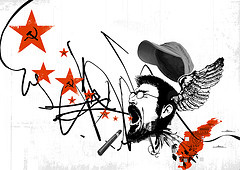 |
 |
 |
 News from Around the Americas | December 2007 News from Around the Americas | December 2007  
Sanctions Against Cuba Are Excessive, GAO Says
 Karen DeYoung - Washington Post Karen DeYoung - Washington Post
go to original


| | (Anton S Nelson) |
U.S. sanctions against Cuba are more restrictive than those imposed on any other country, including Iran and North Korea, and their rigorous enforcement risks diverting government attention from higher-priority counterterrorism tasks, a new government audit has found.

Rep. Charles B. Rangel (D-N.Y.), who requested the Government Accountability Office audit with Rep. Barbara Lee (D-Calif.), criticized the Bush administration for directing scarce resources toward what he called "trivial violations" of import controls, such as Cuban cigars and rum carried by individual travelers, at the expense of "the security that we really need against terrorists."

The year-long GAO study looked at the effects of restrictions the administration imposed on travel and trade with Cuba in 2004, tightening already stringent sanctions imposed in the early 1960s. The new measures included elimination of small "personal use" allowances for Cuban products and reduced the amount of money Cuban Americans could send to relatives on the island as well as the permitted frequency of their visits there. A ban on spending any money in Cuba effectively prohibits Americans without Cuban family members from traveling there.

The GAO found that 61 percent of investigations launched from 2000 through 2006 by the Treasury Department's Office of Foreign Assets Control, charged with enforcing economic and trade sanctions, dealt with the Cuba embargo. OFAC administers sanctions programs against more than 20 countries.

At Miami International Airport, the GAO said, about 20 percent of passengers arriving from Cuba were taken aside for secondary inspections by the Customs and Border Protection service, compared with about 3 percent of passengers arriving from other countries. It concluded that "this intensive inspection" and "resulting seizures of small amounts of Cuban-made products" had occupied a majority of CBP facilities in Miami, "straining the agency's resources for . . . keeping terrorists, criminals and inadmissible aliens out of the country while facilitating the flow of legitimate trade and travel."

The report also noted, however, that the United States exported $350 million worth of primarily agricultural goods to Cuba last year, up from about $6 million in 2000. The cash-only exports are licensed by the Commerce Department under 2000 legislation exempting food and some medical goods. The administration has resisted calls by farm-state governors - many of them Republicans - to lift remaining restrictions on agricultural exports.

The GAO concluded that while Commerce and immigration officials under the Department of Homeland Security adopted "risk analysis principles" that placed Cuba in a low-risk category relative to other sanctioned countries, Treasury and the CPB, also under Homeland Security, did not. Both CPB and OFAC, it said, should reevaluate the balance between resources expended on Cuba and their wider responsibilities.

Although Cuba is one of five countries the United States designates as state sponsors of terrorism, the report noted that no U.S. license is required for travel to Iran, North Korea, Sudan or Syria, and there are no restrictions on personal remittances of funds to those countries.

Describing administration policy as "irrational," Rangel said it was "not successful except to appease the Republican constituency in Florida," where Cuban American voters have traditionally advocated a hard line.

In written responses to the GAO, Treasury, Commerce and DHS said they were carrying out sanctions laws as written. The State Department said that any loosening of the restrictions would only encourage Cuba's communist dictatorship. | 
 | |
 |



